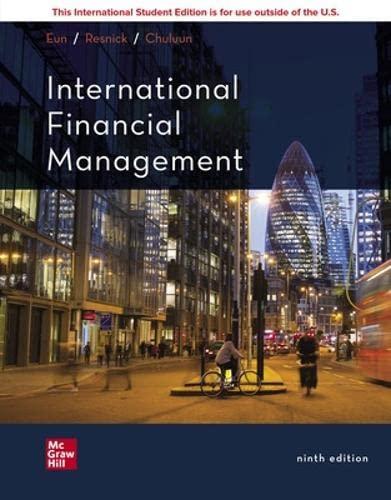Question
Ziege Systems is considering the following independent projects for the coming year. Project (A)-- Required Investment $4 million, Rate of Return 14.0%, Risk-HIGH Project (B)--Required
Ziege Systems is considering the following independent projects for the coming year. Project (A)-- Required Investment $4 million, Rate of Return 14.0%, Risk-HIGH Project (B)--Required Investment $5 million, Rate of Return--11.5%, Risk-HIGH Project (C)--Required Investment $3 million, Rate of Return--9.5%, Risk-LOW Project (D)--Required Investment--$2 million, Rate of Return--9.0%, Risk--AVERAGE Project (E)--Required Investment--$6 million, Rate of Return--12.5%, Risk-HIGH Project (F)--Required Investment--$5 million, Rate of Return--12.5%, Risk--AVERAGE Project (G)--Required Investment--$6 million, Rate of Return--7.0%, Risk--LOW Project (H)--Required Investment--$ 3 million, Rate of Return--11.5%, Risk-LOW
Ziege's WACC is 10% but it adjusts for risk by adding 2% to the WACC for high-risk projects and subtracting 2% for low-risk projects.
a) Which projects should Ziege accept if it faces no capital constraints?
b) If Ziege can only invest a total of $13 million, which projects should it accept, and what would be the dollar size of its capital budget?
c) Suppose that Ziege can raise additional funds beyond the $13 million, but each new increment (or partial increment) of $5 million of new capital will cause the WACC to increase by 1%. Assuming that Ziege uses the same method of risk adjustment, which projects should it now accept, and what would be the dollar size of its capital budget?
Step by Step Solution
There are 3 Steps involved in it
Step: 1

Get Instant Access to Expert-Tailored Solutions
See step-by-step solutions with expert insights and AI powered tools for academic success
Step: 2

Step: 3

Ace Your Homework with AI
Get the answers you need in no time with our AI-driven, step-by-step assistance
Get Started


